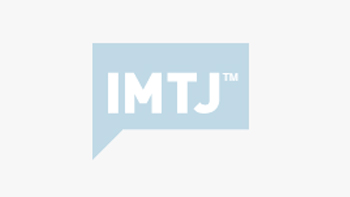The Israel Tax Authority has opened an investigation into suspicions that senior doctors have taking under-the-table payments from medical tourists. The State Prosecutor’s Office has opened a criminal investigation. The hospital has suspended the surgeons pending a full internal investigation.
These moves came in response to a report aired by a Channel 2 television investigative programme. The report suggested that three senior surgeons at Tel Avivメs Ichilov Hospital ヨ Professor Shlomo Constantini, Professor Zvi Ram and Dr. Yossi Paz ヨ demanded large sums of money from a journalist posing as an agent for medical tourists. The report claimed that doctors regularly take cash payments for neurosurgery and cardiac surgery on medical tourists.
The Health Ministry legal team explained, モThe television report does not leave much room for doubt regarding the nature of the transactions. The responses that were quoted, including those of the doctors themselves, do not alter the picture or remove the burdensome impression that emerges from the investigative report, and the filmed evidence supports this impression. We are determined to do everything necessary to put an end to any black-market medicine in government hospitals.ヤ
Health Minister Yael German added, モ Medical tourism must be dealt with and regulated, and guidelines to ensure public welfare must be set. This is being done by a public committee that has been considering the problem and studying the issue seriously for several months already. Shocking as the investigative report was, we must ascertain the facts before making decisions.ヤ
Critics point out that the ministry has been dithering on medical tourism for years. The Ometz organization, which promotes good governance, has asked the state comptroller to investigate medical tourism, モ It takes up a significant slice of Israelメs public hospitals, and the ones hurt by this are Israeli patients. Despite the Health Ministryメs promises to deal with the issue, the situation has got worse. The number of operations and medical procedures for medical tourists has risen significantly, due to a lack of close supervision by the Health Ministry. Since this is an important source of revenue for the hospitals, their appetite and covetousness have grown upon identifying the potential of medical tourists.ヤ
The health and finance ministries and hospitals are blaming each other for the failure to regulate medical tourism. The health ministry claims that it has published guidelines on medical tourism but hospitals and the finance ministry took no notice, but they both reply that the health ministry has published reports with suggestions, but not issued any guidelines or regulations. The health ministry responds that it has been trying to find out how big medical tourism is in Israel, but many hospital groups refused to co-operate with parliamentary investigations.ᅠ ᅠ
Recent events have also triggered a debate between those who argue that medical tourism gives doctors more experience and hospitals much needed revenue, and those that argue that medical tourism denies beds and treatment to locals.
The only common ground is that both sides agree that the health ministry has not issued clear guidelines on what is and is not permitted for doctors who treat foreign patients.
The health ministry admits that with tight restrictions on local prices, that a surgeon who treats a medical tourist can get three or four times what he gets for operating on an Israeli patient. The ministry plans to urgently publish instructions to hospitals that they must not pay those who operate on foreign tourists any more than they get for operating on local residents and that doctors must not charge medical tourists more than locals. But this could still allow hospitals to charge medical tourists more than locals.
This hasty decision triggered another round of arguments. A furious Leon Eidelman of the Israel Medical Association said: モThey have killed medical tourism in all public hospitals. Medical tourists will all go for surgery to private hospitals.ヤ
Hospitals have tried to keep a low profile in the various debates, as they are limited to what they can get from the government and health funds for treating locals, and do not want to lose the medical tourism income that keeps some of them financially secure.
Hospitals want detailed regulation on medical tourism to know where they stand, and what they can and cannot legally do. Most argue that this would control those hospitals and doctors who are over charging medical tourists. Politicians have dithered for years as they see that medical tourism brings in revenue, but fear that regulation could reduce the money that hospitals make, which in turn would force them to pay hospitals a fairer price for treating locals, and in turn would mean Israelis paying more for their health funds. ᅠ
Medical tourism companies, hospitals and doctors have set up the Israeli Medical Tourism Association to formalize and foster the business, amid the public debate over the controversial practice. The organization seeks to put more pressure on the German Committee, which is reviewing Israel’s healthcare, including medical tourism and private healthcare. The committee favours formalizing medical tourism with few restrictions, and has put pressure on ministers that have continually blocked proposals by stating, “The basis and foundations are that no Israeli patient should be harmed, but medical tourism is positive, enriching the experience and the coffers of public hospitals.” The ministry has not replied publicly but healthcare officials have leaked their views to the local press; that this is an empty slogan, because so long as the occupancy rate of wards is 98%, compared with the OECD average of 77%, every medical tourist who is hospitalized for even a couple of days is at the expense of an Israeli patient.








 ©2024 All rights reserved LaingBuisson
©2024 All rights reserved LaingBuisson 


